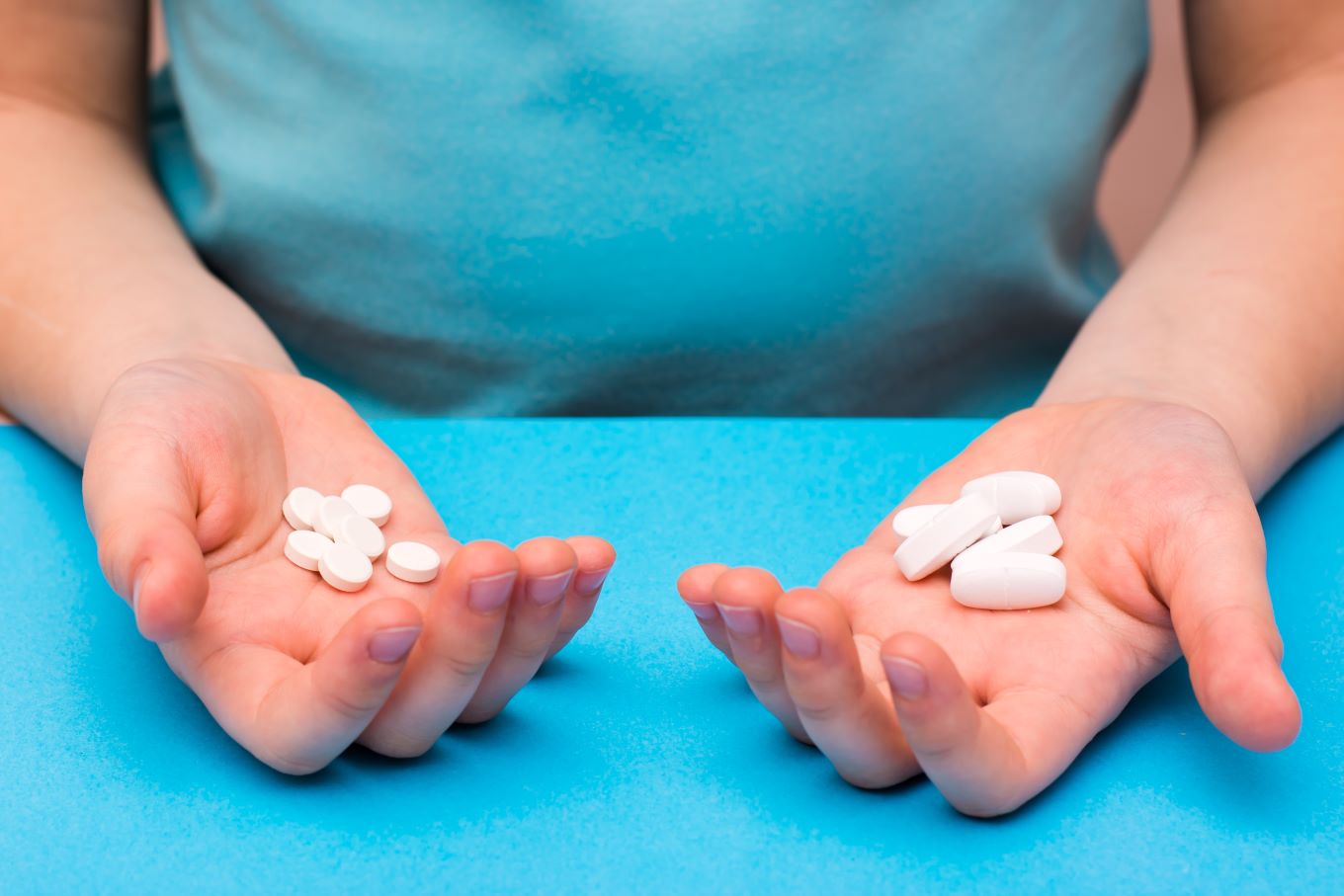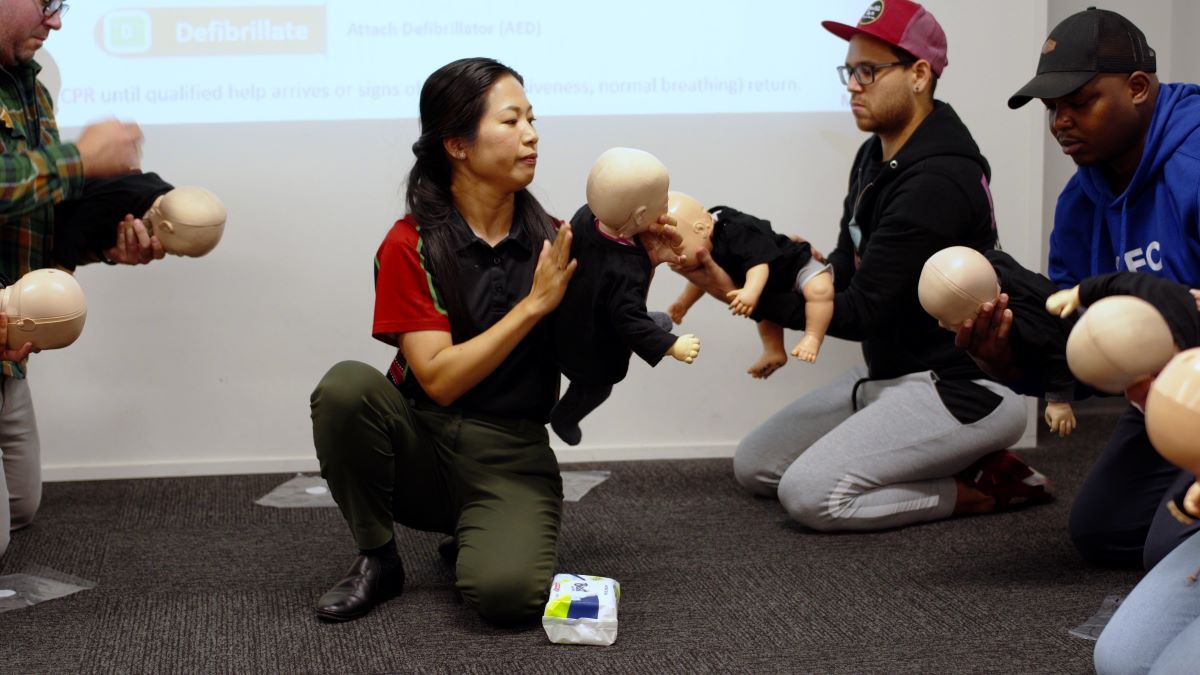Coughs are one of the most common symptoms of childhood illness, making it important to know ways how to relieve cough in children.
Most children will experience coughing at some point, and you may not know how to treat their symptoms safely. The good news is cough is a natural reflex that is your body’s way of removing irritants, which is easily treated with home remedies and first aid treatment.
Read on to discover home first aid remedies, and learn how to identify the signs your child needs to see a doctor.
What is Cough?
A cough is a reflex that helps the body remove mucus, foreign particles, and irritants from the upper (throat) and lower (lungs) airways.
Coughing is a common symptom in children and may be caused by a variety of factors: allergies, asthma, bronchitis,gastroesophageal reflux disease (GERD), and more. It can be acute, which occurs on a sudden, or chronic, where the cough lingers for an extended period.
There are two main types of cough – dry and wet.
- Dry cough (non-productive cough) where no phlegm or mucus is produced. It can be a sign of early infection or may be a symptom of a chronic condition such as long-term lung disease.
- Wet cough (productive cough) is a cough that produces phlegm or mucus. It is usually a symptom of an infection, such as a cold or the flu, but it can also be caused by other conditions, such as bronchitis or pneumonia. The phlegm or mucus produced during a wet cough is typically clear or white and can help remove mucus and other lung secretions.
In general, a dry cough can cause irritation in the throat, while a wet cough is typically more effective in getting rid of mucus.
In small children, cough symptoms can range from mild to severe and may be accompanied by a runny nose, fever, and difficulty breathing.
Typically, a cough is nothing to worry about, but if the child seems to be coughing frequently and over some time, it can be a cause of concern.
Common Causes of Cough in Children
There are several common causes of coughs in children:
- Upper respiratory infections: These are infections of the nose, throat, and airways and are the most common cause of coughs in children. They can be caused by viruses or bacteria and can lead to symptoms such as runny nose, fever, and sore throat.
- Allergies: Children with allergies may develop a cough from exposure to allergens such as pollen, dust, or pet dander.
- Asthma: Children with asthma may experience coughing, wheezing, and difficulty breathing due to narrowed airways and inflammation.
- Bronchitis: This is an infection of the bronchial tubes that can cause a persistent cough and mucus production.
- Gastroesophageal reflux disease (GERD): This condition occurs when stomach acid flows back up into the esophagus and can cause a cough and other symptoms.
There are many possible causes of cough in children. See a doctor for a proper diagnosis.
Signs and Symptoms of Cough
The symptoms of a cough in children can vary depending on the underlying cause. Some common symptoms of a cough in children include:
- Coughing: This is the most obvious symptom of a cough and can range from mild to severe in intensity.
- Mucus production: Children with a cough may also produce mucus or phlegm, which can be clear, white, yellow, or green in colour.
- Shortness of breath: A child with a cough may also experience difficulty breathing or shortness of breath.
- Chest pain: A child may complain of chest pain or discomfort while coughing.
- Runny nose: A runny nose or congestion is often present with a cough, especially in upper respiratory infections.
- Fever: A fever may also be present in some cough cases, especially if a bacterial infection causes it.
It can be difficult to determine if a cough is serious, as it can range from mild to severe in intensity and may be accompanied by a variety of other symptoms. However, some signs may indicate a more serious underlying condition:
- Difficulty breathing
- Chest pain (angina)
- High fever of above 101°F (38.3°C)
- Persistent coughing
- Coughing up blood
In these scenarios, we recommend seeking advice from the doctor.
How to Relieve Cough in Children
Here are steps you can take to help manage cough in children:
- Keep the child well-hydrated: Have your child drink plenty of fluids, such as water, to help thin out the mucus and make it easier to have it out.
- Use a humidifier: Having a humidifier at home can help to add moisture to the air, which can help loosen the mucus and make it easier to cough up.
- Elevate the head: Keep the child’s head elevated to help reduce congestion, even while asleep.
- Saline and suction: Saline and suction are used together to help clear mucus from the airways of a coughing child.
Saline, a solution of salt and water, can help to loosen and thin out thick mucus in the airways. When a child inhales a saline solution, it can help to hydrate the mucus and make it easier to cough up.
Suction, on the other hand, is a procedure that is used to remove mucus from the airways. A suction machine or bulb syringe can be used to gently suck mucus out of the nose or the back of the throat.
- Get some sleep: Encourage them to get plenty of rest and sleep to promote a faster healing process.
- Use over-the-counter (OTC) cough and cold medication: OTC medications, such as decongestants and expectorants, can help relieve some cough and cold symptoms. When taking medications, it is important to follow the dosing instructions and never give medications to a child without consulting a doctor.
Always consult with a medical professional. If the cough persists and the child exhibits severe symptoms, it is best to see a doctor for proper diagnosis and treatment.
(Tip: It’s important to remember that these are just a few general first-aid recommendations for managing cough in children. Specific treatment will depend on the underlying cause of the cough.)
Learn First Aid
Coughing is a common symptom in children that can last for weeks. It may sound serious and can interrupt their sleeping patterns. Still, unless the child is having difficulty breathing or experiencing other severe symptoms, you can easily treat cough with first aid at home.
Learning first aid is an invaluable life skill for both parents and children. Lifesaving knowledge promotes better risk awareness and equips you with skills to keep yourself and others safe in a medical emergency.
First aid training promotes an overall sense of safety and ensures everyone is ready when faced with accidents and injuries.
To learn more about first aid, visit our course page or contact us at courses@firstaidpro.com.au.







